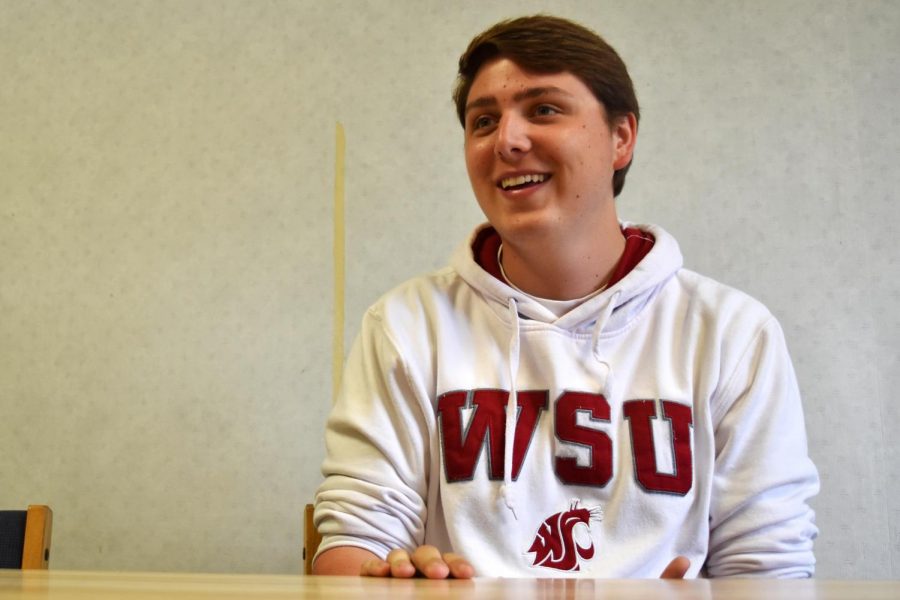Automation threatens all future careers
Students should consider effect of new technology on future jobs before committing to their major
JENIN REYES | THE DAILY EVERGREEN
Freshman Kyle Deutsche, a film major, addresses his concerns about the automation job take over in his career of choice. If students want to be successful, they must account for changing technology as well as their passion.
August 28, 2018
With the unstoppable advance of automation, job security is becoming an increasingly pressing issue. The 15 largest occupations in the U.S. account for more than 27 percent of the labor force, according to the Bureau of Labor Statistics.
Unemployment during the Great Depression was only 25 percent. The 15 largest occupations sadly also happen to be the easiest to automate. These positions include, but aren’t limited to, administrative assistants, general managers and auditing clerks.
With the job market shrinking, even jobs that are not easily automated will be affected. All jobs require customers, and if things do not change soon, those paying customers will dwindle and the economy will fall with them.
Do students, when choosing a future career and the major they will pursue, consider what the future job market will look like when they graduate college?
“I didn’t think about the future job market and automation, especially since I have set the goal of employing myself,” said Jonathan Hernandez, freshman computer engineering major. “Whatever the condition of the future job market is won’t affect my job personally.”
This statement and withdrawal from the reality of the situation is in line with what other research surveys have shown. The Pew Research Center found that most Americans who think they are secure in their jobs also feel that job security is on the decline, but they will not be affected.
Kyle Deutsche, a freshman film major, did not consider the effects of future automation on his career. While film scripts and editing done by artificial intelligence today are rudimentary and sometimes comical, they are only going to get better and eventually eclipse human-made scripts.
Deutsche, after being told this, said, “I wasn’t too sure about majoring in film anyways.”
On the other hand, Richard Howard, an aspiring doctor and freshman biology major, welcomes and hopes for this eclipse.
“I would be okay if robots replaced my job,” Howard said. “It would allow more people to be helped. I did not choose to be a doctor for just the money — I choose it to help more people and if robots can do a better job, I welcome it.”
This perspective is what we may need in the coming future. Howard expressed further that he would be okay with emigrating to developing countries that may not be able to afford robots or robot doctors. Many of us may need, in the future, to emigrate to find work within our field.
In contrast with both Howard and Deutsche, Keanu Espina, a junior physics major, said he didn’t choose his degree in correlation with the job market. Rather, he chose it according to his passions and what he wanted to study at the time without considering the security of a career in that field.
We might see this attitude become mainstream, with more and more jobs becoming automated in the future. There may be no other reason to go to school than what it was originally intended for — to follow your passions and learn.
Today’s students need to research the security of their intended careers. In reality, however, no job is safe in the future. In order for education to be seen as useful, ironically, we must stop seeing education as a tool but rather as a way to enlightenment.



















